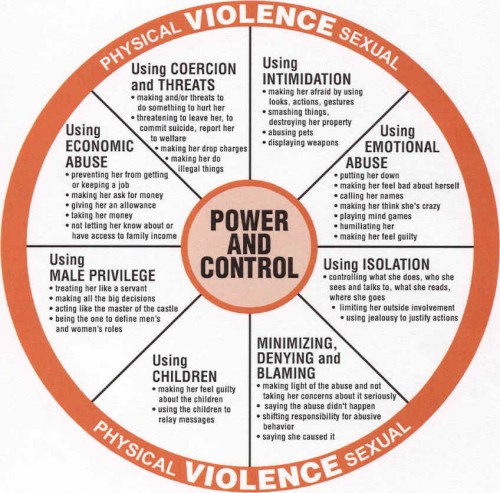What is Relationship Violence
Relationship violence (also known as Intimate Partner Violence (IPV), dating or domestic violence) is a pattern of physically, sexually, and/or emotionally abusive behaviors, used by one individual to maintain power over or control a partner in the context of an intimate or family relationship.
Abuse in relationships is much too common--it affects at least one quarter of all relationships: between men and women and same sex couples alike. However, in heterosexual relationships, men comprise the overwhelming majority of perpetrators and women the majority of victims. For this reason, in this section, we will refer to abusers as "he" and victims as "she," although we do not intend to slight victims of any gender. The information provided here is designed to empower both survivors, their friends and family members in making decisions about their lives, in breaking free of an abusive relationship, and finding the support they need to get to a place of healing and personal empowerment.
Power and Control
As described earlier, intimate partner violence is rooted in power and control. If you look at the wheel below, you can see how most aspects of abuse are not physical, but are emotional, sexual, and even economic. Physical violence, which is in the rim of the wheel, is the force that is used to keep someone under control when the behaviors inside the spokes do not work.

These behaviors may vary for married couples with children, dating couples, or same-sex couples. As you may notice, there are many ways that one person can exert power and control over a partner. Victims of abuse are constantly in a state of tension or "second-guessing" the abuser to anticipate what might make him/her angry. They often talk about "walking on eggshells" in fear that something will trigger an increase in violence. And yet, most abuse survivors describe the emotional abuse as being far worse than the physical violence, largely because they begin to feel "crazy" or like they are losing their minds. Because they become isolated from their family and friends, their only reality check is the abuser. Thus, reality becomes distorted. This is why it's so important to stay in touch with anyone you may know who is in an abusive relationship; the more isolated they become from their support system, the more dangerous their situation becomes.
"Working Together for a Safer Community"
HANDOUTS